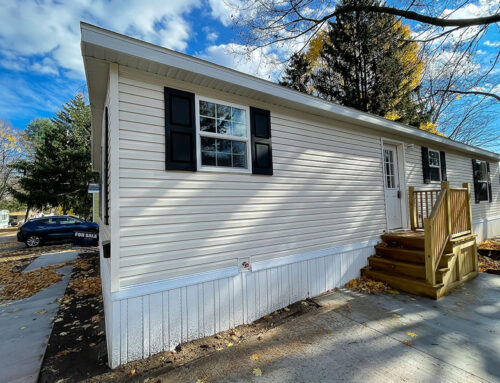When I first got into real estate here in NYC, I was hungry to become a landlord. After all, everyone knows how hard it is to find an NYC apartment. It seemed like a no-brainer. Get a place, put it up for rent, watch the cash roll in. Easy, right?
Well, not that easy. Being a landlord in NYC comes with its fair share of risks that may outweigh the reward. That’s why when new real estate investors ask me if it’s worth it to be a landlord in NYC, my answer is maybe. I can’t say if it’s completely worth it or if it isn’t because it depends on a lot of factors—all of which you have to take into account when deciding what’s best for your business goals.
The State of the New York Rental Market Right Now
The NYC rental market is usually pretty stable but there are no guarantees. Case in point right now. As of June 2021, the vacancy rate is “stubbornly high” according to the WSJ. How high? As many as 1 out of every 10 rental properties is vacant right now. That’s pretty high.
This high vacancy rate is causing landlords to slash rates. Something that’s pretty uncommon in New York. Prices are being slashed. Many are offering two or three months for free, just to attract tenants. Some are even paying the broker fee, which is nearly unheard of.
It’s not always going to be this way, of course. But the rental market is never as stable as you might think. And that is going to impact how you calculate your NYC CAP rate—which helps determine how much passive income you can receive.
In addition to the state of the rental market, there are a number of other factors to consider when determining if it’s worth it to be a landlord in NYC.
Deciding if It’s Worth It To Be a Landlord in NYC
Many real estate investors choose to become landlords and ride out market fluctuations. Let’s explore the pros and cons of doing so.
The Pros of Being a Landlord in NYC
- Competition can be good. There’s no question that finding real estate deals in New York is hard. It’s a competitive market. So if you can find a great place in a great location, you have a good chance of being able to ride out the ups and downs. Of course, it’s tricky to cut the competition. But if you can do it, you could have a source of income for years.
- You’ll get passive income. Making passive income from a real estate investment is the dream of all investors. The idea is that once you have tenants, you’ll have a source of monthly income. And in NYC, those incomes can be very high—potentially thousands of dollars each month.
- There are positive tax implications. Landlords can take advantage of tax implications for things like renovating the property; having a home office; and a home’s value depreciating.
The pros can make being a landlord in NYC worthwhile but there are also cons your should take into account before making a decision.
The Cons of Being a Landlord in NYC
- There are a ton of rules. Because this is a city of renters and lawyers, there is a complicated tangle of rules regulating the rental market. Co-ops and condos have different rules. Subletting is regulated by the city, not just by whatever the landlord decides. And don’t forget rent stabilization. You’ll almost always need a lawyer on retainer.
- Tenant protections. Tenants in rent-controlled apartments have always had a lot of protections. But for the last decade, it’s been almost the same for renters in market-rate rentals. Landlords can only take a one-month security deposit, for instance, and you have to present an itemized security bill, which means taking a complete walkthrough before anyone moves in. That can be a lot of work, and not everyone can stay on top of it.
- Maintenance is constant. Everyone loves the old buildings in New York… except for when the radiator breaks (which it probably will); trash isn’t picked up (which it likely won’t be); or anything else goes wrong. This can take up a ton of your valuable time. Ultimately, the cost and time of doing maintenance will impact your profit.
- The struggle of finding and keeping good tenants. It seems like it should be easy to find tenants. After all, everyone in NYC is looking for a place. But you might not always get good tenants. For better and worse, as we know, NYC has strict tenant rights. You could be stuck with a terrible tenant for a long time, or you could manage to not keep the good ones. It’s can be frustrating and impact your operating income.
The Bottom Line
I’m not going to tell you what to do. But after taking all of this into account—based on my own experience—it isn’t always worth it to buy and hold a property for passive income. Instead, I buy a place, fix it up, and sell it.
This works for me. I don’t have to take on the risks of being a landlord. Instead, I deliver a slightly-upgraded house to someone else who wants to take that risk and I can usually sell it for a higher price than I purchased it since the upgrades impact how my buyer calculates their CAP rate. I get more cash and get to keep finding houses to purchase.
You can too—with the right property.
Finding the Right Property in New York City
It’s not always easy to cut through this competitive market. Everyone is looking for the best deal. That’s why I like being able to find houses without a lot of competition. And that’s been easier since I invested in an independently owned and operated HomeVestors® franchise.
You see, almost everyone in NYC knows about the We Buy Ugly Houses® national marketing campaign. So across every borough, when someone needs to sell fast for cash, they call HomeVestors®. And then I can get the lead. This is someone who is ready to sell, and there’s rarely any competition. It makes it easier to find potentially good properties.
Not only that but there’s a network of buyers readily available to me. I can connect with other investors who are looking for passive income. That’s good for them. And I do what’s good for me. NYC might be incredibly competitive, but I still like a win/win.
Being an NYC landlord could be great for you. But there could be a better way to buy investment property in NYC.
If you want a better way to get property in NYC, request information about becoming a franchisee today.
Each franchise office is independently owned and operated.
Contact
"*" indicates required fields





